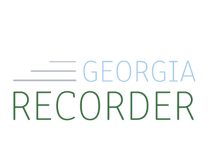
Some Georgia professors are warning a new rule requiring publication of syllabuses could open them up to challenges even from people with no expertise or connection with the university. Getty Images
Have you ever wondered what college students are studying these days? Under a University System of Georgia policy rolling out this semester, finding out could soon be easier.
The policy, approved in May, calls for publicly posting all class syllabuses, including a course description, grading policy and reading list, onto university websites.
Starting this fall, syllabuses for mandatory general education and education classes are required to be posted. All courses will need to be viewable ahead of the fall 2026 semester, and all curricula vitae for faculty members involved in classroom instruction, including office address, work email and office phone numbers will need to be made public by the spring 2026 semester.
Some professors are expressing concern that the policy will open them up to harassment from people with ideological bones to pick but without expertise in their subject or connection to the university.
Speaking at a recent Board of Regents meeting, University System of Georgia Chancellor Sonny Perdue sought to tamp down on those concerns.
“I want to remind everyone of our intentions again,” he said. “At a time when many question the value of education, I think this is just one more way that we can show our commitment to transparency and accountability. The goal is straightforward. I just, frankly, was frustrated and confused about those people who objected to being transparent and accountable about what we want to teach.”
Perdue said some University System of Georgia institutions, including the University of Georgia, already have similar rules and the policy gives students clear and accurate information about courses so they can make informed decisions about what classes to take.
“If you’re teaching what you’ve committed in your syllabus, you don’t have a thing in the world to worry about,” he said. “Some are trying to stir up fear about this change. Let me be clear, there’s no cause for alarm to our faculty members who, virtually, by and large, are doing amazing jobs out there educating our students for student success. There shouldn’t be anything to hide.”
Some Georgia professors are expressing concerns after a case out of Texas A&M University in which a professor of a children’s literature course was fired after teaching materials related to gender identity. The university cited a Texas law requiring public colleges and universities to publish syllabuses and claimed the professor’s lessons did not comport with the class syllabus, a claim others dispute.
American Association of University Professors Georgia chapter president Matthew Boedy said Georgia professors fear similar retaliation or groups that could use technology to scrape vast numbers of course descriptions for readings or topics they find offensive.
“The idea that someone, whether it is a university system official or a disgruntled member of the public could say, ‘Well, their syllabus doesn’t match their catalog and they’re not teaching what you should be teaching’ is part of the fear of many professors, because we live in a world where online mobs are directed at people very quickly,” said Boedy, who is also a professor at the University of North Georgia. “I’m all for transparency and many of the professors are for transparency – to parties that have a stake in the classroom – which are, you know, students, and if you want to include parents in that.”
A survey of higher education faculty in Georgia released this month by the state chapter of the American Association of University Professors found 19.6% of respondents reported having curriculum choices questioned by administrators in the past year.
Another 23% of respondents said they are planning to apply for a job in another state in the coming year.
Of those, the most common reason listed for wanting to leave was their salary, reported by 62%. The next top reasons were Georgia’s “broad political climate,” listed by 56.5% and academic freedom, cited by 46%.
In an open response section, some professors described feeling overly scrutinized. Others worried they could be doxxed by “demagogues” or that they were being saddled with a pointless administrative burden.
YOU MAKE OUR WORK POSSIBLE.


![[Aggregator] Downloaded image for imported item #1136323](https://whitecounty.com/wp-content/uploads/2025/09/gettyimages-2148912235-1024x640-1-696x435.jpg)


